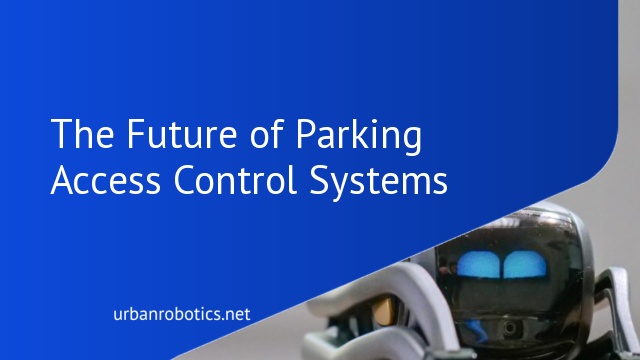The current landscape of urban mobility is rapidly evolving, influenced by trends such as automation, digitization, and the advent of cutting-edge technologies. One prominent aspect undergoing transformative change is parking access control systems.
This paradigm shift can be attributed to the increasing demand for seamless, secure, and eco-friendly parking experiences among users. Consequently, parking management has transitioned from manual to fully automated processes, leveraging next-generation technologies to ensure operational excellence and advanced security.
With the global parking management market expected to reach an impressive $10.14 billion USD by 2023, the implementation of automated and digitized parking solutions is anticipated to become the norm rather than the exception. Such contextual auditory enables us to delve deeper into the future of parking access entry and exit control systems, elaborating on their evolution, the role of innovative technologies, and the challenges and opportunities that lie ahead.
Automation and Digitization
As we look ahead, automation and digitization stand out as pivotal trends, acting as the driving forces behind the future of parking access control systems. These integrated automated solutions serve to enhance the overall efficiency of parking management while also improving security and user experiences.
- Barrier Gates and RFID Card Readers: Barrier gates and RFID card readers are crucial components of these automated systems. As control points, they ensure that only authorized vehicles gain access to parking facilities, thereby reducing instances of unauthorized parking. This enhanced user safety has been a significant factor in the move towards automation.
- License Plate Recognition Cameras: These cameras have been instrumental in the transition from analog to digital systems. License plate recognition (LPR) cameras function to authenticate, record, and manage the parking access of vehicles. This innovation has facilitated real-time communication and the generation of historical records of utilization, optimizing parking operations on a broader scale.
- Mobile Integrations and Digital Payments: The pervasiveness of smartphones has largely influenced the digitization of parking systems. Mobile integrations allow users to reserve, pay, and access parking spots conveniently, negating the need for printed tickets or manual payments. This shift towards automated payments streamlines the parking process and paves the way for a reduction in paper usage, contributing to eco-friendliness and sustainability.
The application of these technologies has significantly improved service levels, paving the way for a future dominated by smart, user-centric parking solutions. Combining automation with digitization has the potential to revolutionize parking management, envisioning a future where convenience and efficiency are not merely desirable objectives, but the standard.
Innovative Technologies
The adoption of innovative technologies is the fulcrum upon which the future of parking access control systems balances. A slew of emerging technologies are poised to change conventional parking systems.
- Connected Cars & AI-Powered Solutions: In the upcoming era, connected cars and AI-powered solutions will play a critical role in automating parking access control. Imagine being able to drive into a parking facility while your vehicle communicates with the parking system in real-time – all without any human intervention. Such technologically advanced access control will usher in an age of smarter and more sustainable solutions.
- Automated Space Allocation & Heightened Security: Automated space allocation, backed by AI-enabled technologies, promises an optimized parking experience. Smart car parks that allocate spaces based on size, types of vehicles, and peak hours foster space utilization efficiency. The integration of AI-powered access control software, smart wireless technologies, and reliable hardware can provide enhanced security, detecting unusual behavior and alerting authorities automatically.
- Value-Added Services & Sustainability: Future-oriented digital solutions deliver more than just parking solutions. The offer of value-added services like in-app navigation assistance, real-time parking availability updates, and congestion forecasting enhances the user experience. Moreover, these digital solutions can also contribute to a sustainable future with reduced carbon emissions through efficient parking guidance and quick turnaround times.
The future of parking access control systems is set to be shaped by these cutting-edge technologies. A focus on automated space allocation, heightened security, and user-centric approach will propel the industry towards delivering a seamless and secure parking experience.
Challenges and Opportunities
Even as we stand at the cusp of a parking revolution, there exist challenges that require overcoming for a seamless transition.
- Choosing The Right System: The decision to opt for a particular system can be overwhelming with the multitude of options available. While some may prioritize security, others might underscore the importance of user convenience and efficiency.
- Establishing Efficient Access Protocols: Designing suitable access protocols remains a critical challenge. These need to cater to multiple aspects including, but not limited to, event parking, site-specific requirements, integration with value-added services to name a few.
Despite the challenges, the future also presents an array of opportunities to enhance the user experience and streamline parking management:
- Interoperability and Integration: The ability to integrate parking access control systems with other services like reservation systems, navigation applications, and payment gateways offer lucrative growth opportunities.
- Government Initiatives: Encouragement from government initiatives to build ‘smart cities’, promises rapid urban development, thereby providing an impetus to next-gen parking guidance systems.
- Increasing Demand for Smart Solutions: There is a growing demand for intelligent parking solutions among users who seek convenience and security, indicating a sustained commitment towards adopting safer, smarter and eco-friendlier car access solutions.
Parking Access Control Systems
The future of parking access control systems is hinged on automation, digitization, and the incorporation of innovative technologies. As we move forward, these future-oriented digital solutions will continue to evolve, driven by the need for optimized parking solutions, enhanced user safety, and a superior user experience.
Consequently, we can foresee a future where parking facilities will be characterized by intelligent, integrated automated solutions that provide a seamless, secure, and user-friendly parking experience. This future presents exciting possibilities as we continue to explore and optimize the world of automated parking access control systems. More than a mere mode of controlling parking access, these innovative systems will form an integral part of the broader prospective of building smarter, safer, and more sustainable cities.





